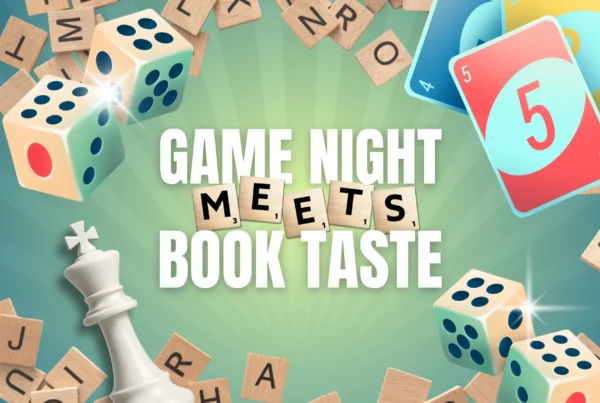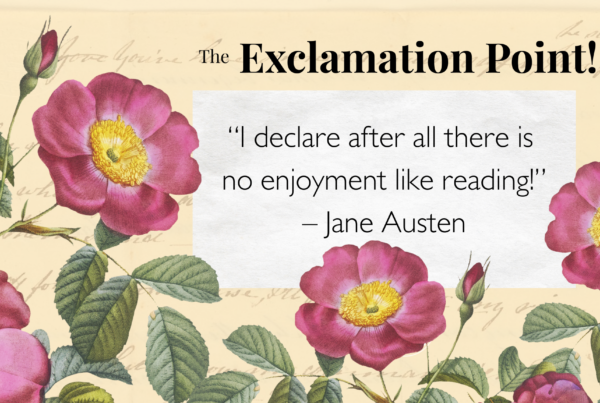I love books. I love reading them, collecting them, talking about them, writing about them. I’ve even been known to hug a book, now and again. I am that person who is forever shoving books into friends’ hands, urging, “Read this!” I have an “Oh! That reminds me of this book I read” moment for every occasion and a “You know what book you should read?” suggestion for every issue.
And yet … I have a hard time sticking with book clubs. Confession time: I’ve participated – and quit – at least eight book clubs over the last 12 years. It’s not that I lacked appreciation for discovering new books I never would have read without book club. It’s not that I lacked respect for the book choices or club participants. It’s not that interesting, thought-provoking discussions were missing-in-action. Despite all of the above being more than satisfying, at some point, my 29,901-mile long to-be-read list and overstuffed bookshelves (literal and virtual) began prickling my conscience. The idea of buying yet another new book, especially one not already on my list, overwhelmed me. And I did a bunk from book club.
I haven’t given up, though. Miraculously, my current book club is in its third year – a record for me! We often read a single book together, but we’ve also stepped away from that traditional script. And that is what I attribute the group’s longevity to, at least in part: We continue to find new ways to share our love of books and reading. These are 10 of my favorite twists on the familiar book club concept:
Read aloud
Remember that cozy feeling of being read to as a child? Well, in oldie times, reading aloud wasn’t just for littles. I say if bell bottoms and vinyl can come back in style, so can reading aloud as entertainment. Reading to your friends may feel weird at first, but it’s addictive and soothing.
Read together
You want to read. Really you do. It’s just so hard to find the time. So how about setting aside time to read with like-minded friends? No pressure – just good friends and good books, in the same room. You can meet in private homes, public libraries, coffee shops, even pubs and read, together, in companionable silence. Maybe you talk about the books at some point; maybe you don’t.
Drop-in discussion
With my current book club, even when we read the same book, we inevitably end up veering away from it to talk about the best books we read since we last met. Sometimes I wonder why we ever pick a single book since we seem to have so many different titles to rehash at our meetings. If your book club is made up of heavy readers with to-be-read lists roughly as long as the circumference of the earth (see paragraph two above for the exact figure), maybe you don’t need to pick a single book. Get together over dinner and talk about whatever books you’ve been reading.
Literary supper clubs
And speaking of dinner, a literary supper would pair well with any of the above options. You’ll find a tall stack of related reads to choose from, whether it’s memoirs with recipes like Cara Nicoletti’s Voracious or literature-inspired cookbooks like Barbara Scrafford’s Literary Feasts. Version 2.0: Pick a significant food or favorite food scene from whatever book you’re reading, and find or create your own recipe.
Read single themes (instead of single books)
Maybe you liked the idea of reading Anthony Doerr’s fabulous All The Light We Cannot See, but you’re more of a nonfiction reader, or a memoir reader, or a book-that’s-under-500-pages reader. Why not invite book club participants to choose whatever book they want to read within a common theme? For example: World War II novels, contemporary literary fiction, mother-daughter memoirs, books about books, novels set in Paris, bestsellers published in 2005. Any one of these themes – among many, many others – can lead to a fascinating discussion of how different authors circle around and explore the same questions, problems and longings.
Read single authors (instead of single books)
The concept also works with single authors who are prolific. One club member might be keen to read Edith Wharton’s The House of Mirth. Meanwhile, the others are willing to read Wharton … just not 300 pages of her. So one member reads the full-length novel while others opt for selections from Tales of Men and Ghosts, or the short story Roman Fever, or the novella Ethan Frome. It works as well with classic authors like Charles Dickens, Jane Austen and Fyodor Dostoyevsky as it does with contemporary ones like Haruki Murakami, Nick Hornby and Jacqueline Woodson.
Literary game night
You know being bookish is having a moment when we get our own Scrabble edition. Jenga, Trivial Pursuit and Memory also have book lover editions. And those are just the famous franchises. Do a quick search of “literary games” and you’ll find options galore. They’ll all keep you talking books all night long, in the context of friendly competition.
Book and movie night
If you were going to invest tens (or hundreds) of millions of dollars into making a film, it would be nice to know that film comes with a built in fan base, wouldn’t it? Ergo, book-to-film adaptations. With so many contemporary and classic options, your book club can plan to hit a theater or stay in and screen from the comfort of your living room. Discussing the book before or after (just not during!) is optional.
Classics (and their reboots) book club
You might be thinking, “Wait, I thought these were supposed to be fun book club ideas!“ Only joking. What could be more fun that reclaiming the books you (were supposed to) read in school? Finally, you get to gossip about the characters as if they’re real people. And if you really just can’t with Pride and Prejudice again, you could revert to thematizing: Whoever wants to read Austen’s Pride and Prejudice can have at it, while the rest of the members pick reboots like Bridget Jones’ Diary, P. D. James’ Death Comes to Pemberley, or any of the roughly hundreds of thousands of titles that riff on Austen and her books. Authors like Mary Shelley, Charles Dickens, Bram Stoker, H. G. Wells and the Brontë sisters may not present quite as many titles as Jane Austen, but you won’t struggle for options.
Literary road tripping
For book clubbers with wanderlust, making a pilgrimage to a literary landmark together is a bonding experience … that segues into a book discussion (what else?). Researching these together is fun too. Libraries or cafés where well-known authors penned their bestsellers, local attractions that appear in famous novels, book talks by your favorite authors – you might be surprised to discover how much bookish history and entertainment is in your own backyard!




